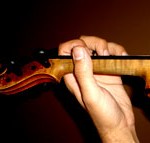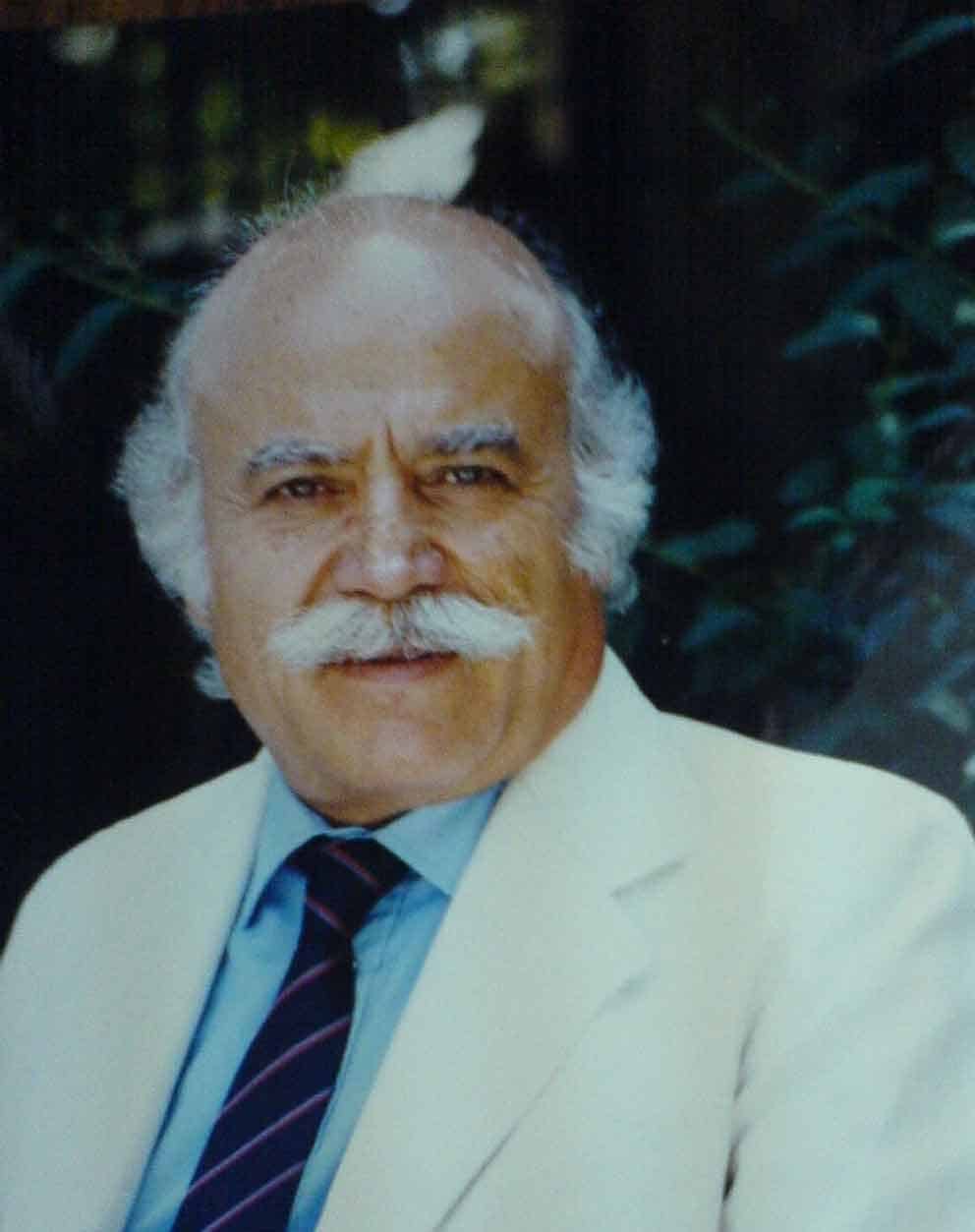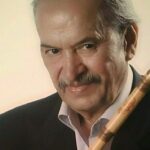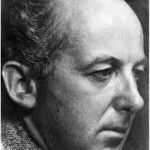Almost three months into the new Iranian year (starting March 21), it is still not too late to have a look at the last year and the challenges that the musicians faced. The following article was published on the first day of the New Year in the Persian edition of the HarmonyTalk journal.
Category Archives: Contemporary Music
Last Year under the Light of Music
Is the Iranian National Anthem a Copy? (II)
In response, it should be said that it is better for the national anthem of a country to use the musical material exclusive to that country; however, some problems might come up in doing so the most important of which include: lack of familiarity of other countries’ music performer with the concerned country’s specific music intervals and special musical technique; and secondly, the strangeness of that music to the foreign listener.
Is the Iranian National Anthem a Copy? (I)
The alleged similarity between the Iranian and South Korean National Anthems has been a matter of discussion among musicians in Iran for several years. Earlier in 2021, the issue was taken to the media again with not only claims that the anthem is very similar to another song but also the suggestion that its musical content should draw more on the Iranian national music. Some even went to the extent to suggest replacing it with the song “O, Iran” composed by the late Rouhollah Khaleghi. Before delving more into the main issue, it would not go amiss to consider some technical characteristics of the song “O, Iran” composed in 1944.
Farhad Poupel’s piece, Road to Bach, performed at Suntory Hall
On June 19, 2021 , young Iranian composer and pianist, Farhad Poupel’s piece, Road to Bach, was performed at the prestigious Suntory Hall by the great Japanese pianist, Kotaro Fukuma. The piece was commissioned by Kotaro Fukuma to have its world premiere in Suntory Hall during a concert by the same name.
Latest posts
- Transition to Enlightenment: Six Lectures on Mozart’s String Quartets (5)
- Nasser Masoudi: The Voice of Gilan and a Legacy of Iranian Music
- Farhad Poupel: The Voice of the Shahnameh in the Orchestras Around the World
- Five Major Myths About Mozart’s Life
- Bahma Rajabi Passed Away!
- Reza Vohdani; Unveiling unpublished works, preservation of Iranian classical music
- Ahmad Pejman Passed Away!
- Timeless or Timely: The Role of Historical Context in Defining Artistic Value
- Leading the Charge in Censorship
- The Legacy of Khosrow Jafarzadeh
- Transition to Enlightenment: Six Lectures on Mozart’s String Quartets (4)
- Fereydoun Shahbazian, An Iranian Musical Icon Passed Away
From Past Days…

A Miracle in the Iranian Music: About Tehran Flute Choir’s Eight-year Tenacity
Tehran Flute Choir is a 40-member orchestra of Iran’s best flutists; Iran’s best flutists? Yes! If you write down the names of the greatest Iranian flute players who participate at concerts and contribute to academic centers in Iran, you will see that most of them are among the choir’s members.

Principles of Violin Playing (III)
Violin players should always pay attention to the proper position of the left thumb and other points related to it and to its joining point to the palm.

Interview with Farhad Poupel (II)
Fantasia on One Note was my first professional work for piano, which had its world premiere by the great pianist Peter Jablonski in Sweden, and it has been performed by various pianists in the UK, Germany, France, and the Czech Republic. The recording of this work has also been broadcast on the Dutch public radio, NPR Radio 4.

Layla Ramezan, Iranian Pianist
Iranian pianist Layla Ramezan has always sought to create a connection between her Persian origin and the contemporary music which she encounters daily. Sound, phrasing, a particular sense of rhythm and a refined understanding of the “time of musical development” are the foremost qualities of her interpretations. Her musical and pianistic education began in Tehran at the age of 8 with Mostafa-Kamal Poortorab. Having moved to Paris and received a scholarship from Albert Roussel Foundation, she integrated the classes of Jean Micault and Devi Erlih at the Ecole Normale de Musique de Paris Alfred Cortot, where she received a Diplôme de Virtuosité in piano performance and chamber music.

Reza Vohdani; Unveiling unpublished works, preservation of Iranian classical music
Reza Vohdani is a renowned name among tar (traditional Iranian instrument) players, especially within the Iranian music community that values the meticulous practice and teaching of traditional music. While Vohdani honed his skills in music theory and tar playing under the guidance of masters like Ali-Naghi Vaziri, Ali-Akbar Shahnazi, Hossein Dehlavi, and Ahmad Forutan-Rad, it is his unwavering dedication to studying, documenting, and teaching the Iranian classical music repertoire that has solidified his prominence in the field. Recently, Vohdani’s family decided to make his preserved works accessible to the wider art and music community. In this regard, The Persian-language newspaper ‘Iran’ spoke with Sadjad Pourghanad, a musician, university instructor, and music researcher, who shared his opinion into the project, as detailed in the interview below.

Maestro Hassan Nahid’s Role in Promoting the Ney
Maestro Hassan Nahid is one of the most prominent and distinctive artists who values high morals, discipline and hard work. His music activities include playing the Ney as both soloist and an accompaniment in the most important Iranian music orchestras and ensembles during the last fifty years, including the Orchestra of Iranian Instruments (Nusratullah Golpayegani), the Orchestra of National Instrumentalists of the Ministry of Culture and Arts (Payvar Orchestra), the Orchestra of Iranian Instruments (Morteza Hananeh) , Darvish Orchestra, Samaie Orchestra, Roudaki Orchestra, Maestros’ Ensemble, Aref Ensemble, as well as performances in various radio programs, many concerts in different countries, as well as a long teaching experience in the National Conservatory of Music, music universities and other music institutions to name but a few.

Leading the Charge in Censorship
Davoud Pirnia, writer and musicologist was the founder of “Golha” (Flowers of Persian Song and Music) programs on Tehran Radio (1956-1966). He received his early education from his father, Hassan Pirnia (Moshir al-Douleh), and several tutors of the time (Taraghi, interview, July 1989) and continued his studies at Saint Louis School in Tehran and then in Switzerland and graduated in law. While studying law, Pirnia got acquainted with European classical music. Upon returning to Iran, he was employed by the Ministry of Justice and founded the Lawyers’ Guild. Then he was transferred to the Ministry of Finance and established the Department of Statistics in this ministry. Later, he became the head of the state inspection office at the Prime Ministry; he was, then, promoted to the position of the Deputy Prime Minister (Navab Safa, interview, August 1999)

Henry Cowell: “Persian Set”
Persian Set: Four Movements for chamber orchestra: Moderato; Allegretto; Lento; Rondo
Henry Cowell, one of the most innovative American composers of the 20th century, was born in 1897. Cowell and his wife visited Iran in 1956 and stayed there the whole winter, upon the invitation by the Iranian Royal Family, when he composed his album “Persian Set” in four movements for chamber orchestra. His composition is expressive of the characteristic quality of the Persian or the Iranian music.

History’s Impact on Evaluating a Work of Art
With this description, we have automatically included a criterion called “History”, Until we know the time of the creation of a work of art, we cannot judge whether it has been easy to create or not. Suppose that, in a historical study, we find a musical work that is similar in compositional techniques (including form, melody, context, and orchestration) to a minor work of the nineteenth century; however, our research proves that, this work dates back to 200 years prior to that date. Can we still consider this work insignificant? Definitely not! So this is where the first use of history-based judgment comes into play.

The Structure of Kurdistan Daf (I)
Today, percussion instruments have such a high place in music that are an essential element of orchestras. This has attracted many people to this type of instrument with roots as old as the first humans. A historical study of music, shows that humans used the sound of these instruments to defend themselves against wild animals and, over time, for alerting each other, signaling their readiness and encouraging people for war, ritual ceremonies, dances, etc. in a manner that is still clearly visible in music and some ritual ceremonies.